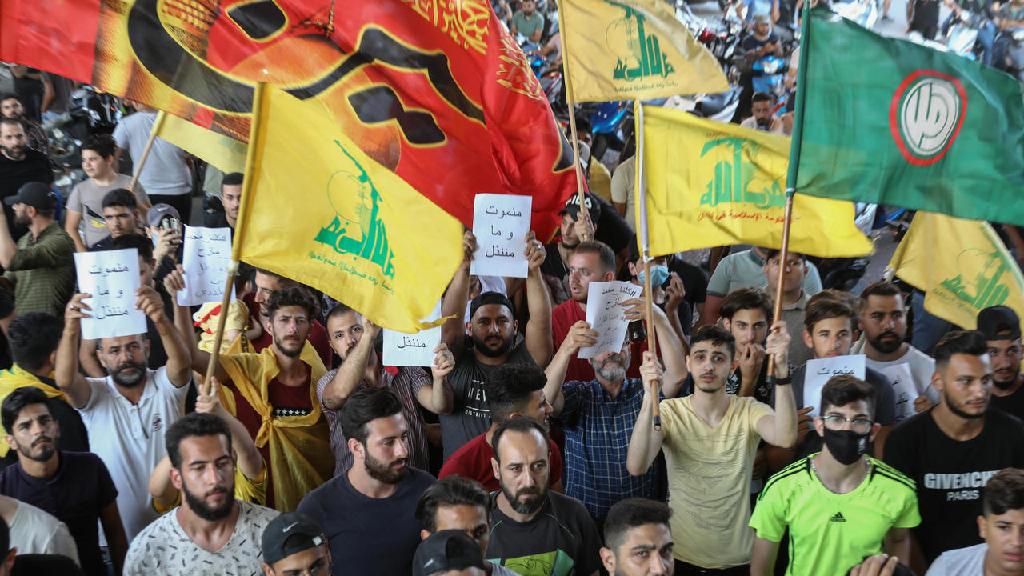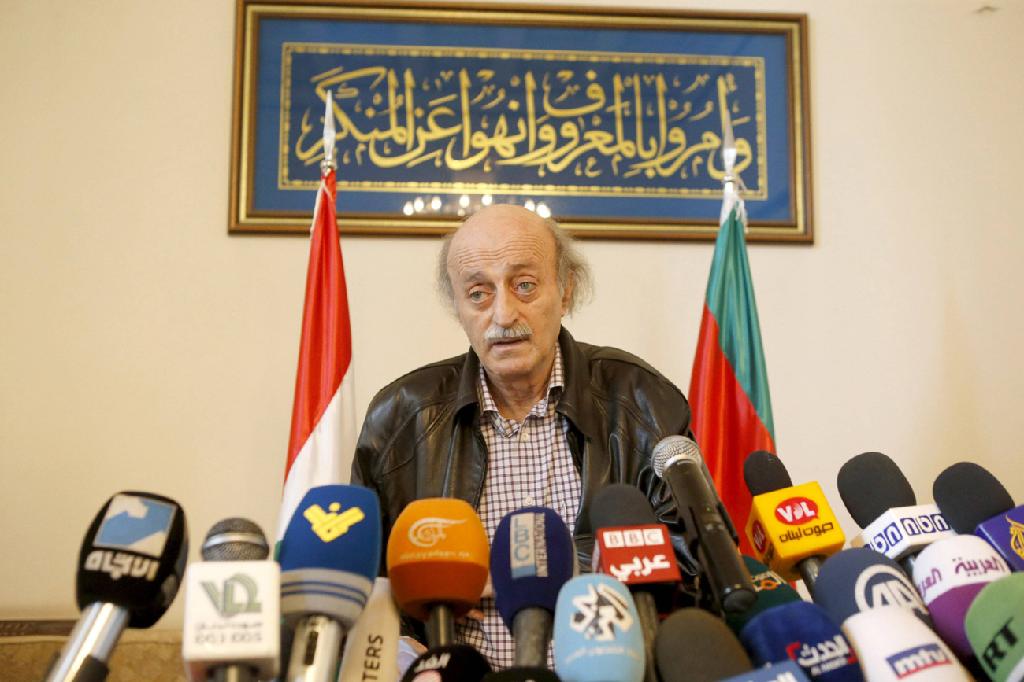When it comes to Lebanon, the U.S. and France have similar outlooks, but one major point of difference involves the Hezbollah movement -- shunned by Washington but tolerated by a pragmatic Parisian leadership.
While the United States seeks to isolate and curb the influence of the Iran-backed group it has designated a terrorist organization and punished with sanctions, France recognizes it as a key political actor whose cooperation is needed to lift Lebanon out of crisis.
Lebanon's government stepped down last month amid popular anger over a massive blast at Beirut's port on August 4 that killed 191 people, wounded thousands and ravaged large parts of the capital.
Both Western powers have agreed Lebanon needs a cabinet different from its predecessors to tackle urgent reforms, but all consensus seems to end there.
"France's approach tends to be more realistic," analyst Karim Bitar told AFP.
"France views Lebanon as it is, while the (U.S. President Donald) Trump administration tends to view Lebanon as it would like it to be."
6 View gallery
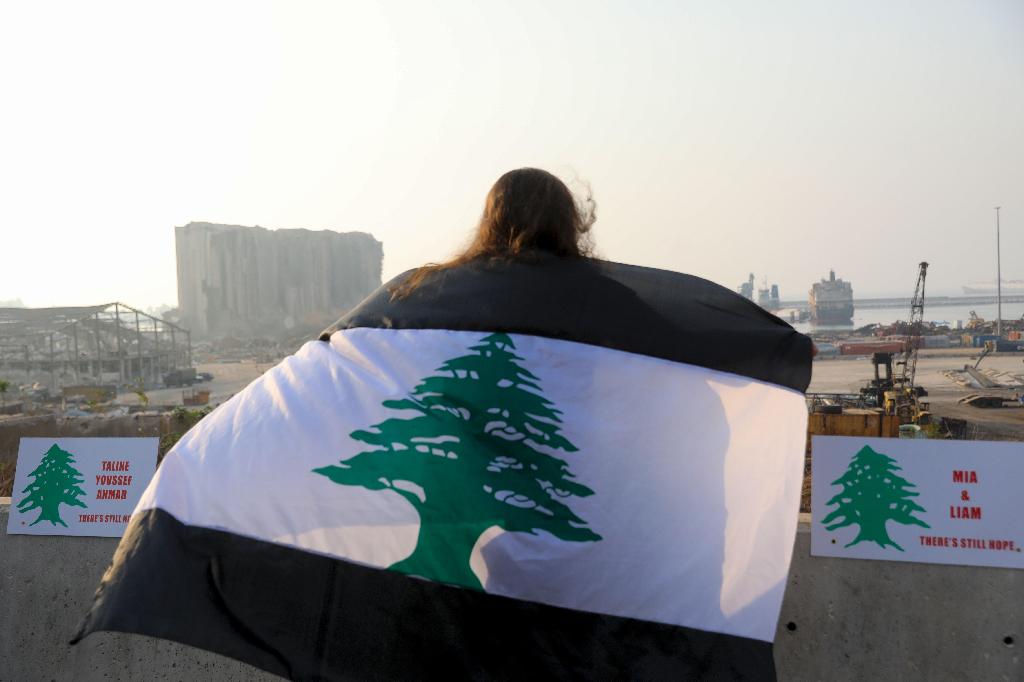

A woman, draped in a black-striped Lebanese flag, looks towards Beirut's port, during a demonstration to mark one month since the cataclysmic August 4 explosion
(Photo: AFP)
The U.S. view is that Hezbollah -- the only group not to have disarmed after the 1975-1990 civil war -- holds excessive influence in Lebanon, "which needs to be contained", Bitar said.
But Paris recognizes "Hezbollah in Lebanon is a major political actor, that it has a wide captive constituency in Lebanon's Shi'ite community, that it is here to stay," he added.
'Elected by the people'
The United States has been following closely as French President Emmanuel Macron twice visited Lebanon since August 4 to press for political change and reforms to unlock financial aid.
During his last trip, the French leader differentiated between two facets of Hezbollah -- one "terrorist", and the other, a political party "elected by the people" to parliament and allied with the Lebanese president's party that could not be excluded from talks.
6 View gallery
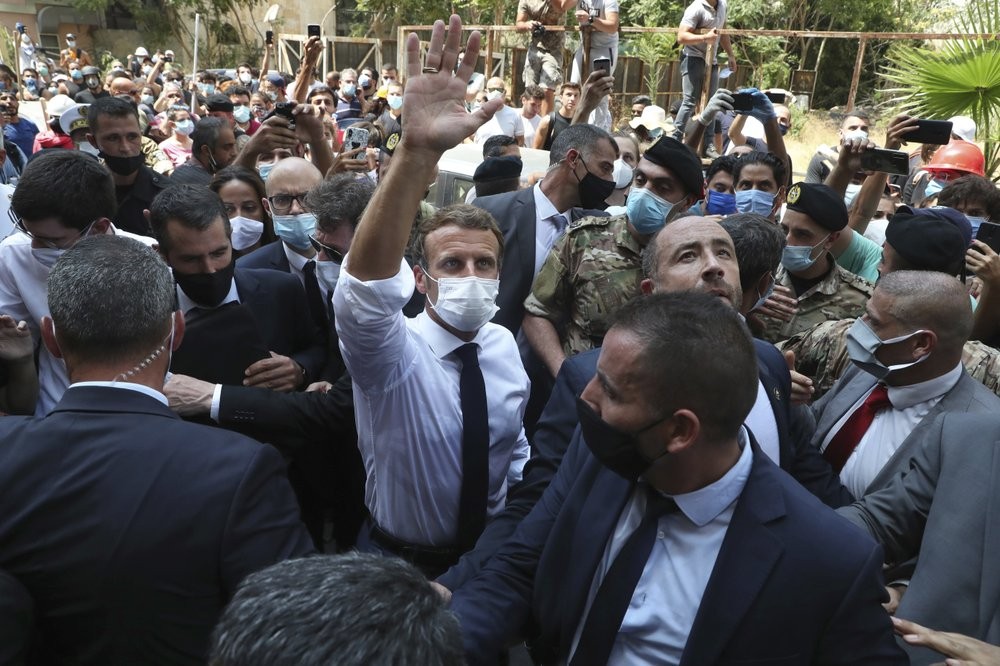

French President Emmanuel Macron, center, gestures as he visits the Gemayzeh neighborhood, which suffered extensive damage from the Beirut port explosion
(Photo: AP)
Hezbollah chief Hassan Nasrallah has been notably positive about Macron's visits, not labeling them as "foreign interference" as he might have done for such a move by the U.S.
The Shi'ite movement's parliamentary bloc leader, Mohammad Raad, was among lawmakers who met Macron before he said all sides had agreed to form a new government within a fortnight.
France, which has outlined a roadmap for reforms for the next government, "wants to maintain a channel of dialogue with Hezbollah in order to prevent the destabilization of Lebanon", Bitar said.
Paris views itself as "an honest broker" to do this in a time when tensions are at a peak between Washington and Tehran.
6 View gallery
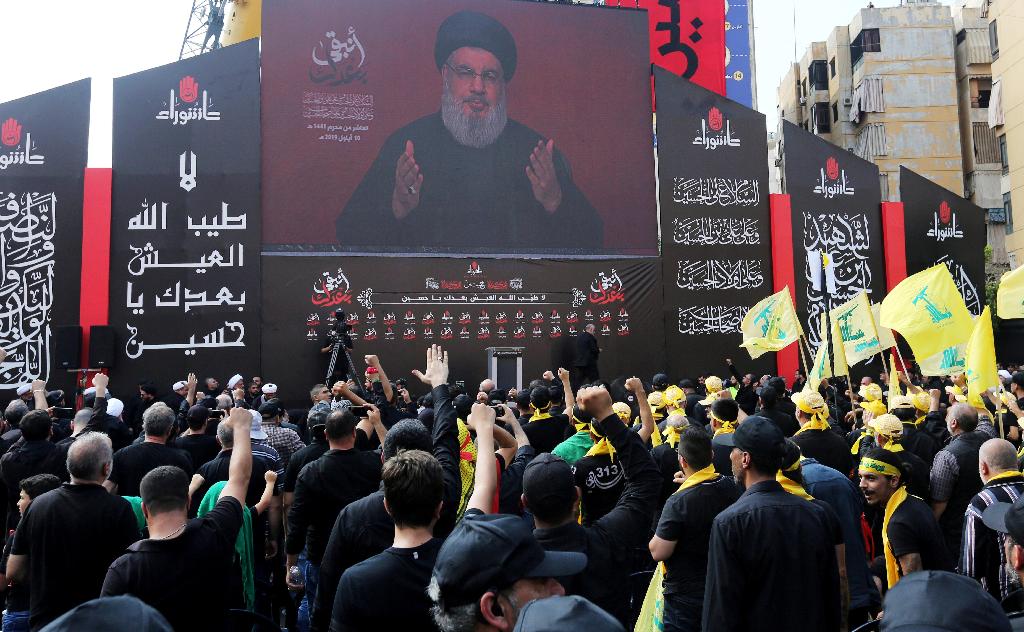

Hezbollah leader, Hassan Nasrallah, giving a speech in Lebanon's capital city of Beirut
(Photo: Reuters)
Observers say France is one of the only Western powers to have maintained direct contact with Hezbollah, pointing to the role of the current French ambassador, who formerly held the same post in Tehran.
"There has always been direct contact between Paris and Hezbollah," an Arab diplomat in Beirut told AFP.
And as Washington is caught up in preparing for the U.S. presidential polls, it appears to be giving France some leeway on Lebanon.
"The Americans have set as a condition that Hezbollah not take part in the (next) government, but they could turn a blind eye to them remaining if there were a deal and reforms," the diplomat said.
Hezbollah 'cannot be trusted'
U.S. Assistant Secretary for Near Eastern Affairs David Schenker, also visiting Lebanon last week, told Lebanese newspaper An-Nahar that the U.S. appreciated the French initiative, but differed on a few details, including that Hezbollah was not a legitimate political organization but a "terrorist" group.
He did not meet with key political figures, instead seeing army chief Joseph Aoun, lawmakers who resigned after the port blast, civil society activists and Shi'ite figures opposed to Hezbollah.
6 View gallery
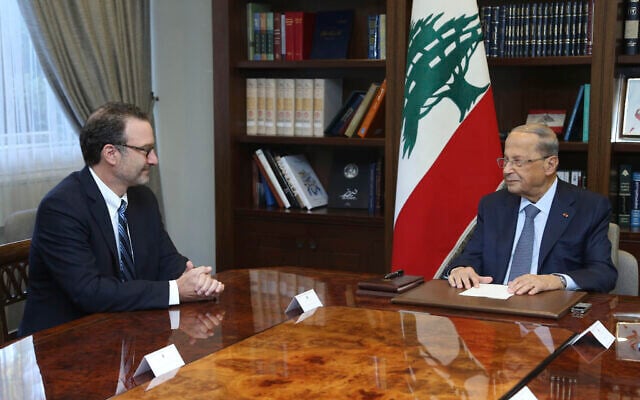

Lebanese President Michel Aoun, right, meets with David Schenker, U.S. Assistant Secretary of State for Near Eastern Affairs in Beirut
(Photo: AP)
One such Shi'ite figure told AFP that Schenker said during their meeting that Hezbollah "cannot be trusted" to lead reforms.
"Hezbollah has been given ample opportunity since 2005 to really involve itself in the state and has not changed its behavior," the source reported Schenker as saying.
The United States has demanded Hezbollah lay down its weapons, but also echoed the call of a political minority in Lebanon that the country be "neutral", meaning that it break ties with Iran and distance itself from the region's conflicts.
Most Lebanese political sides, however, have accepted that the Shi'ite movement is a military force to contend with and a political actor present in all branches of state, which, with its allies, currently dominates parliament.
Responding to U.S. Secretary of State Mike Pompeo calling for Hezbollah's weapons to be dealt with as a priority, Druze leader Walid Jumblatt in a televised interview last week responded that the solution would come through politics.
"Let Pompeo forget the rockets for now. That matter will be solved through politics when the time is right," he said.


